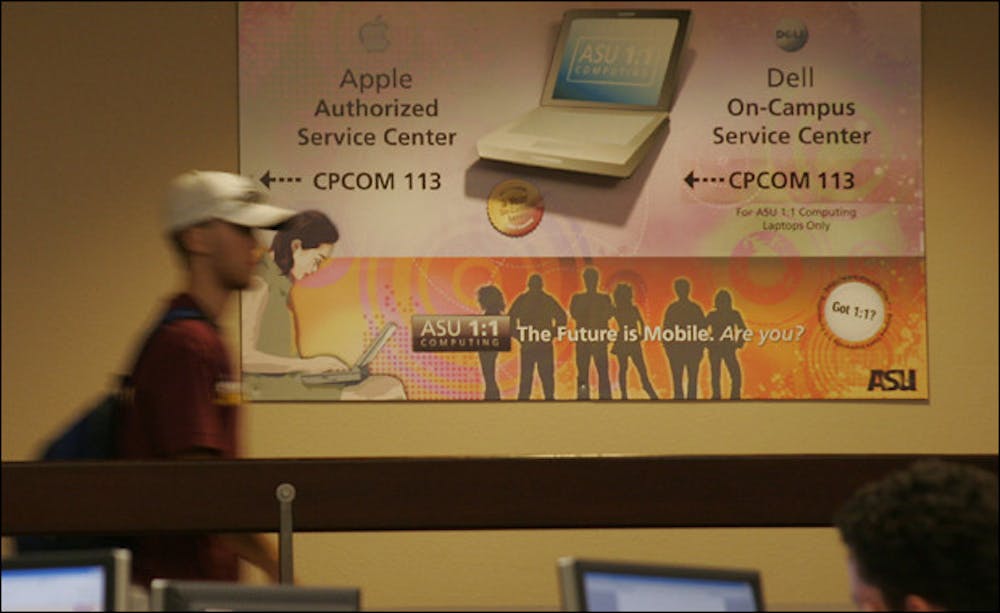Companies like Apple and Google benefit tremendously from partnerships with ASU, boosting product loyalty among students who are likely to be affluent after graduation, marketing experts and a University official said.
Partnerships with these companies in turn offer students improved access to technology, services, scholarships and opportunities to work with major players in various industries, said Adrian Sannier, the University technology officer.
Roger Hurni, a marketing and public relations professional, said college students make up a very targeted population for companies trying to establish brand-name loyalty, since students can continue to buy products for the rest of their lives.
“Companies look at the lifetime value of a customer,” said Hurni, a partner and the creative director for the Tempe-based strategic communication agency Off Madison Ave.
If a company can entice a student to use a product, “they can have you for the next 40, 50 years,” he said.
Marketing professor Stephen Brown said companies are projecting that college students will be affluent after graduation and therefore will have more purchasing power.
And while many ASU students still in college may be financially dependent on their families, they likely have more discretion on their spending in college than any other time before, he said.
If companies establish familiarity and comfort with their products among college students, they can increase their sales in the long term and short term, said Brown, who is also the executive director for the Center for Services Leadership. The ASU center researches and provides education in fields including services marketing.
“Apple is a great example of a company that’s developed a strong brand loyalty among their customers,” he said.
If somebody uses an Apple computer in college, Brown said, there is a good chance they will continue to use the product for much of their life.
Sannier, the University technology officer, said ASU’s relationships with technology companies are mutually beneficial, considering the companies have a better stake in the college market as a result of the partnerships.
“We’re always looking for the strongest technology players with the strongest vision,” Sannier said.
Though Google will close its Tempe offices in November, Google’s partnership with ASU will continue to benefit both entities, said Jaime Casap, a Google business development manager and ASU faculty member.
ASU was one of the first schools to launch Google Apps Education Edition — a product that offers e-mail, a calendar, spreadsheets and other services, Casap said.
The product was offered for ASU students and faculty in 2006, and it is currently used by more than 2 million people, Casap said.
“We’ve developed a great partnership with ASU and we’re going to continue to build on that,” he said.
Offering students these services is a way for the company to give back to the community, Casap said, adding the service comes without advertisements — a significant portion of Google’s revenue. Additionally, students are more likely to become lifetime Google users if they try the company’s products in college, he said.
Ryan Swankie, a French literature graduate student, said he started using Google e-mail because ASU provides it.
After he graduates, Swankie said he would likely continue using Google e-mail, mostly because he was introduced to it through ASU.
Swankie said it’s a good strategy for companies to reach out to college students.
“It’s a big market,” he said.
Reach the reporter at matt.culbertson@asu.edu.




